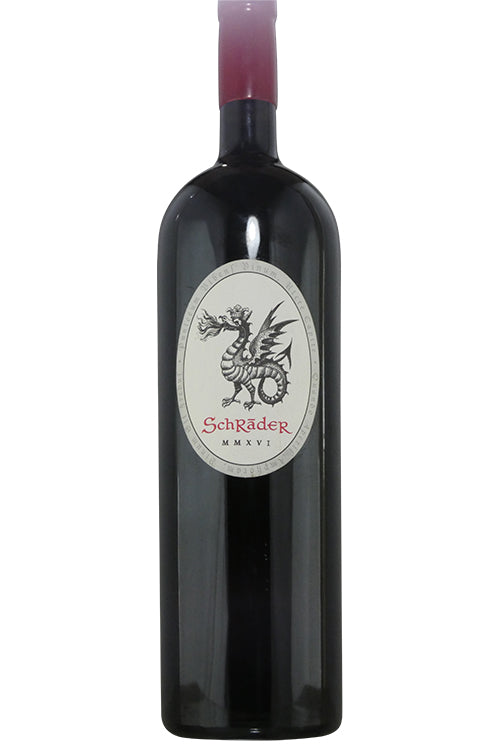1
/
of
1
- Home
- Big Bottles!
- Schrader Cellars Cabernet Sauvignon "Old Sparky" Beckstoffer To-Kalon Vineyard - 2016 (1.5L)
Schrader Cellars Cabernet Sauvignon "Old Sparky" Beckstoffer To-Kalon Vineyard - 2016 (1.5L)
Schrader Cellars Cabernet Sauvignon "Old Sparky" Beckstoffer To-Kalon Vineyard - 2016 (1.5L)
Regular price
$2,499.99
Sale price
$2,499.99
Regular price
$2,499.99
Unit price
/
per
100 points, Wine Advocate-The 2016 Cabernet Sauvignon Old Sparky is very deep purple-black in color with a wonderfully pure nose of blackcurrant cordial, blackberry preserves and black cherry pie with nuances of dried bay leaves, dusty soil, garrigue and new leather plus touches of unsmoked cigars and pencil shavings. Full-bodied, concentrated and jam-packed with flavors, the palate is pure hedonism with a solid line of ripe tannins and great freshness, finishing very long.
Share :

- varietal
- Region
- Sub - Region
- Type
- Reviews
Cabernet Sauvignon is one of the most prominent dark-skinned grape varieties except Merlot in terms of area under vines, but which comprises our largest selection of wines. Grown in just about every wine producing region and climate, Cabernet Sauvignon can express a huge range of aromas, from green peppers in cool climates through to dark jammy fruit in hot regions. Common aromas include blackcurrants, mint, graphite, and forest floor, to name a few. Maturation in small oak barrels can develop a complex range of aromas from cedar wood, cigar box and tobacco to eucalyptus and undergrowth. Cabernet Sauvignon’s success is partly due to its ability to adapt to a range of soils and climates. It is the main constituent of the Bordeaux blend in the revered communes of Pauillac, St. Estephe and St. Julien, and has achieved equal success in California’s Napa Valley. It is grown extensively throughout Southern Australia, with some outstanding examples from the Terra Rossa soil of Coonawarra. Cabernet Sauvignon also plays an increasing role in Tuscany, Italy, where it is blended with native varieties such as Sangiovese to produce the Super Tuscans.
California is one of the most diverse wine producing regions of the world. Although it has a history spanning over 200 years, it has experienced most of its growth in the last fifty years. The regions of Napa Valley and Sonoma County have become as renowned as France’s Bordeaux and Burgundy. While Cabernet Sauvignon, Pinot Noir, and Chardonnay are by far the most popular fine wine varieties, producers in the Golden State have also experimented with an unparalleled array of diverse varieties, including Zinfandel, Syrah, Nebbiolo, Sangiovese, and Tempranillo.
The country’s most famous wine producing region, Napa Valley stretches from the North bay of San Francisco Bay in the South, all the way up to Mount Saint Helena in the North. Although the climate is suitable for a wide range of varieties, Cabernet Sauvignon is dominant and practically synonymous with the region. To account for its geographical diversity, the valley is split up into a number of AVAs. From north to south, the valley consists of Calistoga, St. Helena, Rutherford, Oakville, Yountville, and Oak Knoll. Higher elevation sites include Howell Mountain on the east and Mount Veeder on the west. On its own, Stags Leap District is tucked into the very south east corner of the valley.
Red wine is wine made from dark-coloured grape varieties. The color of red differs based on the grapes variety or varieties used.
Interestingly, black grapes yield a juice that is greenish-white. The actual red color comes from anthocyan pigments (also called anthocyanins) from the skin of the grape (exceptions are the relatively uncommon teinturier varieties, which produce a red colored juice). Most of the production centers around the extraction of color and flavor from the grape skin.


